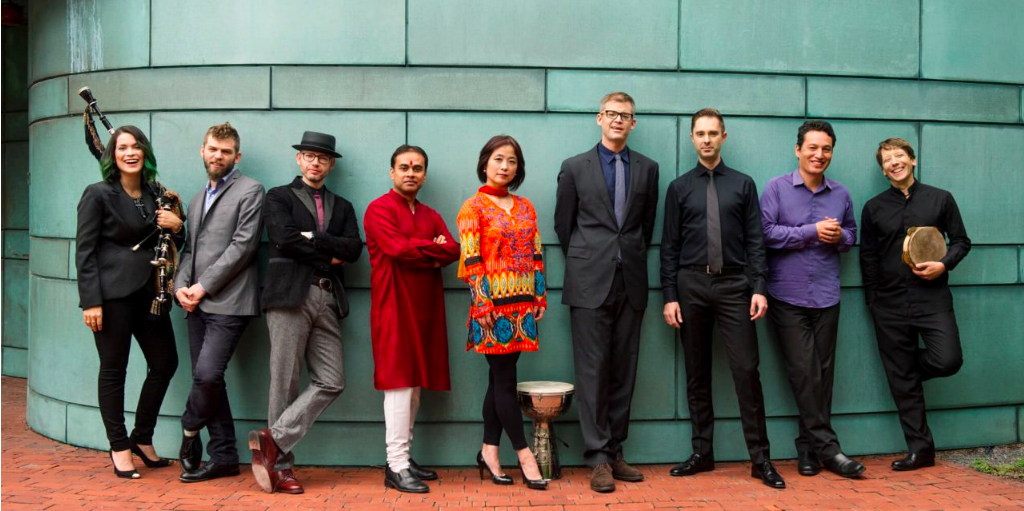
Silkroad Ensemble (CUPresents.org)
The Silkroad Ensemble played its debut Colorado concert on Thursday at CU’s Macky Auditorium.
Founded by Yo-Yo Ma in 1998, the Silkroad Ensemble explores “what happens when strangers meet”. The ensemble’s original instrumentation was inspired by music encountered along the historic silk road, which was the largest trading route between Asia and Eastern Europe from 200 B.C. to 1450 A.D.
Yo-Yo Ma brought together this diverse group of musicians who have collaborated for two decades to combine American music with music from other cultures in revolutionary ways. They have recorded seven albums, one of which won a Grammy in 2016 for Best World Music Album. The group now includes the Japanese shakuhachi, Korean janggu, Galician bagpipes and Celtic harp — although not all of these instruments were included in Thursday’s program.
Silkroad began the concert with a long and dramatic piece named “Caronte,” which lasted nearly 15 minutes. Composed by the Galician bagpiper Cristina Pato, the song symbolized the ferryman’s journey across the river Styx to “bring souls of the living … to the realm of the dead,” as Pato herself walked across the stage.
Eclectic sounds rang through the auditorium, at first seeming like several pieces from different countries were being played at the same time. Galician bagpipes blared an Arabic melody amid percussive sounds of a tambourine and Indian tabla drum while two violins, a clarinet, a cello and a double bass played a dark accompaniment with a plucked Chinese pipa. Suddenly, the volume dropped to a peaceful lull, a quiet clarinet solo playing over percussive strumming on the pipa. The piece alternated between these two extremes, finishing with a jazzy clarinet solo morphing into the original Arabic melody.
From there, the program continued to showcase unique and often strange cultural collaborations. “Ghanaia,” the second piece, presented rhythms from Ghana on the xylophone along with tabla and tambourine solos. During the solo, the tabla player used a metal hammer to create squealing pitch changes while still tapping away at lightning speed.
Then, the pace slowed for a bit with “Night Thoughts” by Silkroad’s pipa player, Wu Man. A duet for pipa and clarinet, the piece was based on a ninth century folksong from western China. A peaceful clarinet melody echoed through the auditorium above the pipa’s distinctive tremolo and plucked notes. However, the dynamic group’s tempo changed. They ended the first half with a piece inspired by both Venezuelan and Galician music called “Migrations Suite,” once again featuring the booming bagpipes.
The second half began with most of the group back onstage for “Tarang,” meaning currents, by Silkroad’s tabla player Sandeep Das. The piece was a wonderful sharing of ideas, with many sections of question and answer between different instruments, especially the percussion section. Then came a simple title, “Duo” with cellist Mike Block and Wu Man. An outrageous yet satisfying cultural mashup, the piece combined the traditional Chinese song “Dance of Golden Dragon” with an American fiddle tune.
The night finished with “Air to Air” by Osvaldo Golijov, a commission for the Silkroad Ensemble. The piece was lovely. It featured Arabic melodies and pre-recorded vocal tracks of speech in a foreign language. However, the titles were even more beautiful and emotive than the piece itself, including a movement called “Wah Habibi” or “My Beloved.”
The concert was eccentric and unforgettable. Silkroad showed us the beauty in differences and celebrated collaboration among people of all nationalities.
Contact CU Independent Arts Writer Isabelle Fincher at Isabelle.Fincher@colorado.edu.
